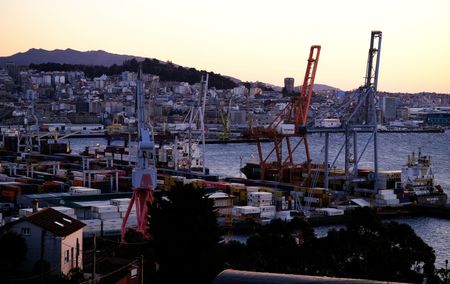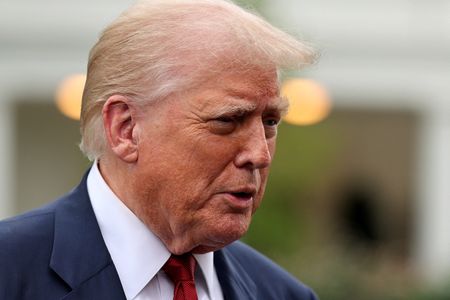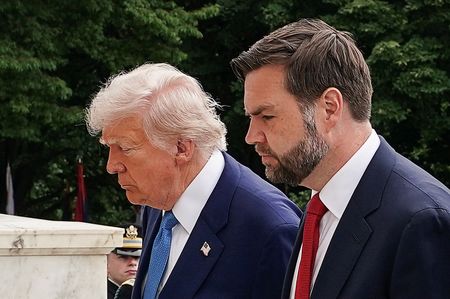FRANKFURT (Reuters) -A global trade war could lower both economic growth and inflation in the euro zone and it could have an “unambiguously recessionary effect” on the countries involved, ECB board member Piero Cipollone said on Tuesday.
Cipollone’s remarks strengthened the case for a further ECB rate cut in June and also warned about the risks of a more fragmented world, such as obstacles in the flow of capital and even a possible erosion of the U.S. dollar’s status as the world’s safe haven currency.
“The recent increase in trade policy uncertainty could reduce euro area business investment by 1.1% in the first year and real GDP growth by around 0.2 percentage points in 2025-26,” he said. “The observed increase in financial market volatility might imply lower GDP growth of about 0.2 percentage points in 2025.”
While the inflation impact is less clear, the short to medium-term effects may even prove disinflationary for the euro area, Cipollone added.
He also shed light on the deeper implications of moving from a world dominated by the United States and the dollar to one that is fragmented into economic blocs.
“If the long-term implications of higher tariffs materialise, notably in the form of higher inflation, slower growth and higher U.S. debt, this could undermine confidence in the U.S. dollar’s dominant role in international trade and finance,” he said.
Cipollone added central banks needed to prepare for “sudden stops in capital flows, payment disruptions and volatility in currency markets requires” via “robust contingency planning and crisis management frameworks” while major economies should look for alternatives to protectionism.
“The G20 countries committed to preserving open trade could call an international trade conference to avoid beggar-thy-neighbour policies and instead…support the global economy in this period of uncertainty and contribute to reduce global imbalances,” he said.
(Reporting by Balazs Koranyi;Editing by Francesco Canepa and Kate Mayberry)











